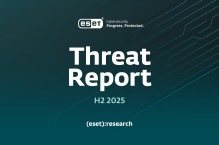Apple introduced biometric security to iPhone for the first time with the launch of its new iPhone 5S, featuring what Apple describes as an “intelligent” and “accurate” laser fingerprint sensor.
The Touch ID sensor is built into the gadget’s home button, and uses a laser-cut sapphire crystal to take high-resolution images of users’ fingers, and “intelligently analyze” them for identification.
The system allows users to unlock their phones with one finger - and make secure purchases, at least from its own iTunes Store, App Store and iBooks Store. Leaks from other mobile firms such as HTC suggest that top-end Android models could soon offer fingerprint authentication built into hardware.
Previous biometric systems built into cellphones such as Motorola’s Atrix were widely criticized as being unreliable. Apple claims its system improves over time, and is secure enough for online purchases.
“All fingerprint information is encrypted and stored securely in the Secure Enclave inside the A7 chip on the iPhone 5s; it’s never stored on Apple servers or backed up to iCloud,” the company said in a statement.
“iPhone 5s is the most forward-thinking smartphone in the world, delivering desktop class architecture in the palm of your hand,” said Philip Schiller, Apple’s senior vice president of Worldwide Marketing. “iPhone 5s sets a new standard for smartphones, packed into its beautiful and refined design are breakthrough features that really matter to people, like Touch ID, a simple and secure way to unlock your phone with just a touch of your finger."
Some observers were skeptical, though. Stephen Ebbett, global director of gadget insurer Protect Your Bubble, said: "As rumoured, Apple's iPhone 5S introduces Touch ID, utilising touch-based fingerprint sensors - but this could turn out to be more a gimmick than an impenetrable security measure at this stage." He added,
Being able to use fingerprint security login for iTunes purchases is a nice touch, if it works. And with the rise of wireless payment technology, the mobile space is crying out for better security. But while biometrics are typically seen as more robust than password protection – sweat, dirty pockets, hot and cold environments, sun exposure, and other factors can affect the sensitivity and working conditions of the sensor surface. Earlier gadgets that have sported fingerprint scanners proved temperamental, and mobile fans will have to wait until they can get their fingers on the 5S to determine if Apple can deliver biometric functionality that is vastly improved.
We recently reported on another biometric, your heartbeat, and according to Stephen Cobb, Senior Security Researcher with ESET, we may be on the verge of widespread deployment of biometrics. Says Cobb, "Successful implementation of biometrics in a segment leading product could bode well for consumer acceptance." He adds, "I have been a fan of biometrics as an added authentication factor ever since I first researched multi-factor and 2FA systems 20 years ago, however, user adoption is very sensitive to performance; in other words the iPhone 5S could advance biometrics, or put a whole lot of people off biometrics."




